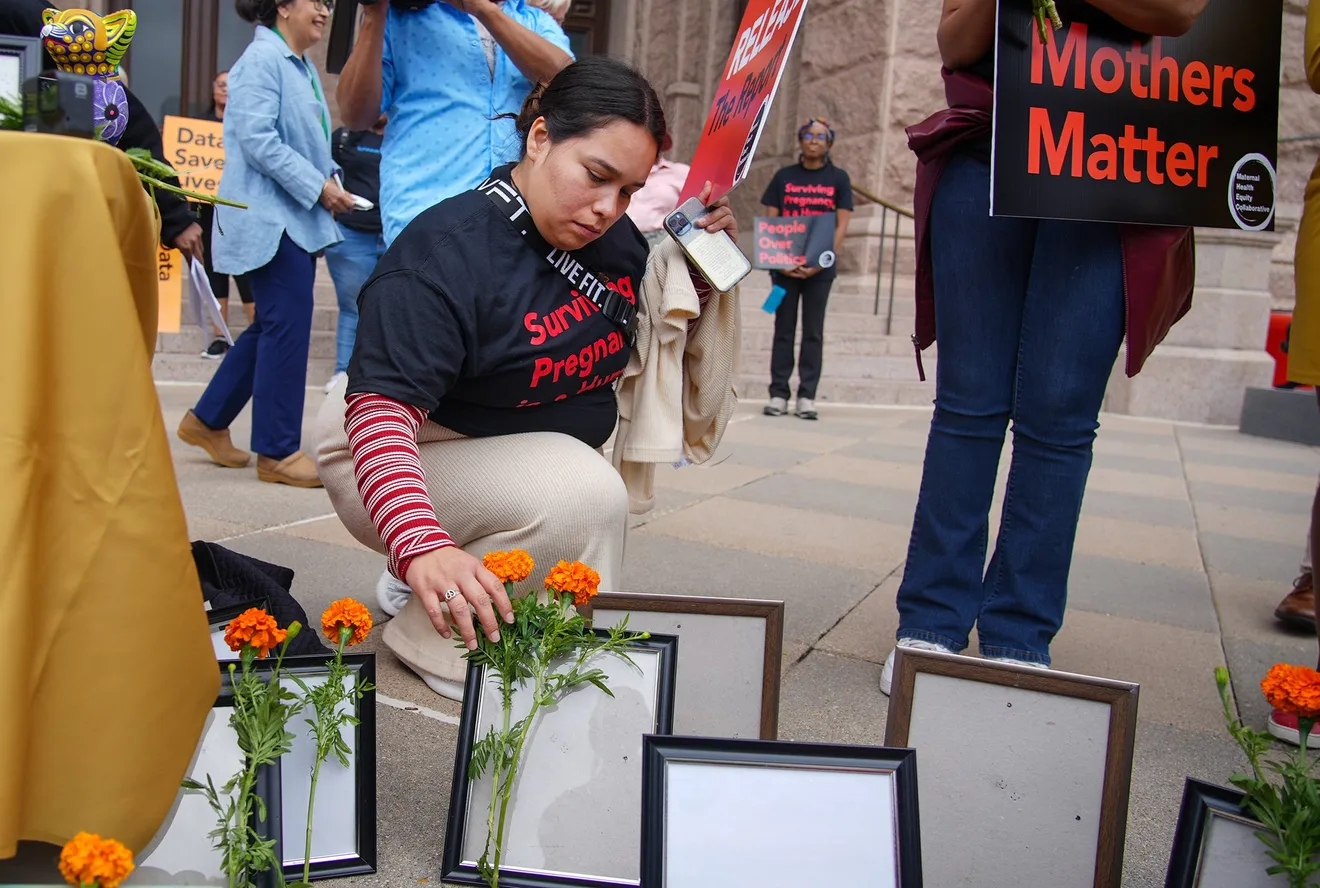Rising Maternal Mortality Rates Coincide with Negative Experiences Reported by Pregnant Women During Doctor Visits, says CDC.

A 40% Surge Observed in US Childbirth Fatality Rates – Unveiling the Reasons Behind the Alarming Increase.
Recent Survey Reveals Disturbing Maternal Mistreatment During Doctor Visits in the US
According to a newly published report from the Centers for Disease Control and Prevention (CDC), one out of every five American women disclosed instances of scolding, threats, or other forms of mistreatment during their prenatal medical appointments. Alarmingly, women of color experienced even higher rates of such maternal mistreatment. These findings come at a time when maternal mortality rates are on the rise throughout pregnancy, childbirth, and the postpartum period.
Dr. Debra Houry, CDC’s Chief Medical Officer, expressed strong disapproval during a media briefing, stating, “This is an unacceptable situation.” She emphasized that mistreatment and discrimination can severely impact the quality of maternity care and stressed the need to foster a culture of respectful maternity care. Dr. Houry also called for integrated efforts aimed at enhancing the quality of care through standardization to mitigate complications and fatalities associated with pregnancy and delivery.
In the United States, maternal mortality rates have surged in recent times, escalating from 17.4 fatalities per 100,000 live births in 2018 to 32.9 in 2021, as reported by data from the CDC. This issue is especially worrisome for Black and Native American women. Notably, non-Hispanic Black women encountered a mortality rate almost three times higher than that of their non-Hispanic white counterparts.
The CDC study unveiled a concerning aspect: over 80% of all maternal deaths were potentially preventable. The study identified underlying factors such as mental health conditions leading to fatalities due to suicide or overdose, instances of hemorrhage involving severe bleeding, and cardiac problems as primary causes.

Survey Findings
In its most recent publication, researchers from the CDC examined information derived from a group of 2,400 women who participated in an April survey conducted in English. The survey was administered by the consulting firm Porter Novelli through their View Moms survey – a voluntary consumer audience panel comprising U.S. mothers with children aged 18 years and younger. Dr. Houry indicated that this survey provided a comprehensive “national perspective.” The questionnaire, spanning participants from across the nation, delved into inquiries about maternity care encounters throughout the pregnancy or delivery of their youngest child.
The prevalent forms of mistreatment that were documented encompassed:
- Absence of responses to pleas for assistance (9.7%)
- Instances of being yelled at or reprimanded (6.7%)
- Violation of physical privacy (5.1%)
- Encountering threats of treatment denial or being coerced into unwanted treatment (4.6%).
The rates of mistreatment were most elevated among Black, Hispanic, and multiracial women. Similarly, women lacking health insurance indicated a higher occurrence of mistreatment, approximately 28%, akin to those with public insurance, which stood at 26%. In contrast, only 16% of women possessing private insurance reported instances of mistreatment.

Black, Hispanic, and multiracial women felt discrimination more strongly.
Women were also inquired about instances of discrimination they encountered based on factors such as their race, ethnicity, skin color, age, or weight. Approximately 40% of Black, Hispanic, and multiracial participants revealed that they had felt discriminated against, in contrast to 29% of all participants.
Survey respondents indicated experiencing discrimination linked to:
- Age (10%)
- Weight (10%)
- Income (6.5%)
Furthermore, nearly 45% of the respondents shared that they refrained from posing questions or discussing concerns with their healthcare provider. Common reasons cited included considering their experiences as normal during pregnancy (28.8%), not wanting to excessively highlight issues or feeling embarrassed to talk about them (21.5%), or receiving input from friends and family that such experiences were typical during pregnancy (21.2%).
While the findings were not directly tied to maternal mortality, researchers emphasized that the data does align with evidence indicating that inadequate diagnosis of issues can potentially endanger women. Dr. Wanda Barfield, the author of the report and the director of the CDC Division of Reproductive Health, who is of Black ethnicity, stressed the necessity for enhanced communication and trust between patients and healthcare providers.
“We aim for patients to feel at ease when discussing their health concerns with their medical caregivers,” she highlighted, underscoring the significance of nurses, physician assistants, and doctors in this process. Dr. Barfield emphasized, “It’s crucial for healthcare providers to dedicate the time to cultivate trust, actively listen, and demonstrate cultural sensitivity to the individuals we are caring for.”
What is the response from policymakers?
Over the past few years, legislators have endeavored to advocate for matters concerning Black maternal health, with some even establishing a congressional caucus. In April, the Biden administration officially designated a Black Maternal Health Week.
The latest discoveries further validate the ongoing maternal health concerns within the American healthcare system and emphasize the significance of considerate care as a crucial element in mitigating pregnancy-related fatalities. The report recommended enhancements in standardized care, along with education on issues such as discrimination, stigma, unconscious bias, cultural understanding, and effective communication techniques to facilitate better interactions between patients and healthcare providers.
“Dignity and respect should be extended to every mother. Maternal care is an essential pillar of our nation’s healthcare, and the Biden-Harris Administration remains dedicated to enhancing maternal health results,” commented U.S. Department of Health and Human Services Secretary Xavier Becerra in an official statement. He further asserted, “Prejudice, stigma, and mistreatment have no role within our healthcare systems.”


